DOLPHINS AS HEALERS
“During a positive experience joy eclipses illness.”
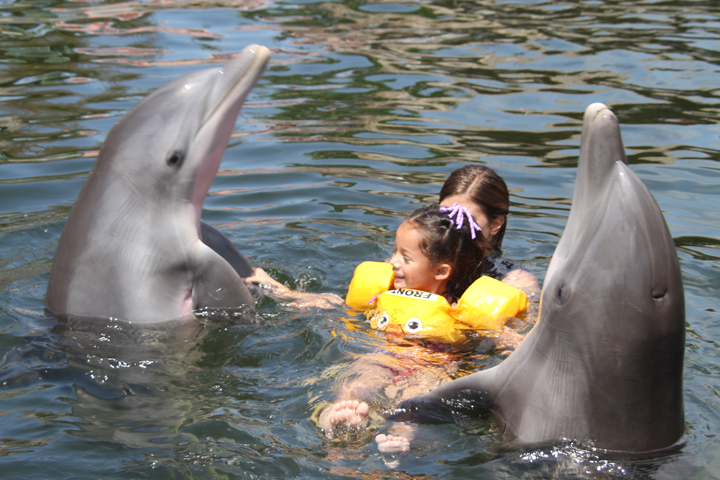
The sun glistened on the water as if a child had sprinkled glitter on it. It would be a hot day but a hint of the early morning cool breeze still lingered in the air. A very faint smell of fresh fish and sea enveloped us as we walked out of the building. We stepped onto this serene tropical world and all our worries seemed to evaporate, mix with the humidity in the air and float away. Ariane fixed her sight on the pool that opened from the canal into Island Dolphin Care. Her eyes reflected the glimmer of the water as they danced with excitement while she said, without turning to look at me: “Dolphins! Is that Bella?”. Close to the railing a bottlenose dolphin looked at us, her head tilted to one side, the water shining on her smooth skin.
Ariane’s therapist was waiting for us with two interns who came all the way from Europe to participate in this unique program. Ariane and Sebastian where fitted with life vests and we where led to one of the floating docks covered with navy blue canvas shades lined on one side of the pool. After a short orientation Ariane was in the water with her therapist. Fiji and Bella’s trainer gave the dolphins instructions and I watched in amazement as Ariane interacted with the dolphins as if they where the best of friends. They all twirled around in the water as they sang Twinkle-twinkle Little Star, Bella and Fiji keeping the tune with a combination of clicks and high pitched whistles. One of the dolphins was instructed to come to the dock where Sebastian placed a big rubber ducky between her two fins, she swam on her back to the middle of the pool where Ariane received the toy between giggles and little screams of excitement. We sat on the dock bobbing in the water every time the 500lb dolphins jumped 10ft into the air.
From time to time Sebastian and I had the opportunity to touch the soft rubbery cetaceans when they approached, but Ariane was the center of attention. On the second day, the usually shy kindergartener was spontaneously letting everyone know what she wanted to do with the dolphins, using full sentences and being able to increase the volume of her voice so it would reach the trainer who was more than 10 ft away. The staff joked that Ariane was not really receiving therapy but interviewing for a job as a trainer; she learned different commands for the dolphins to jump, “talk” and say goodbye. During her swims together Ariane’s new friends propelled her by putting their noses on the soles of her feet, swam swiftly with her holding on to their dorsal fins, shook her hand, had a conversation with her and showered her with dolphin kisses. They where gentle enough to make her feel safe but treated her as an equal, there was no tiptoeing around the “little girl with autism”, no acting awkwardly around her or expecting her not to be able to do everything with the; when it came to having a splash fight they didn’t let her win and she accepted being beat between happy screams and giggles.
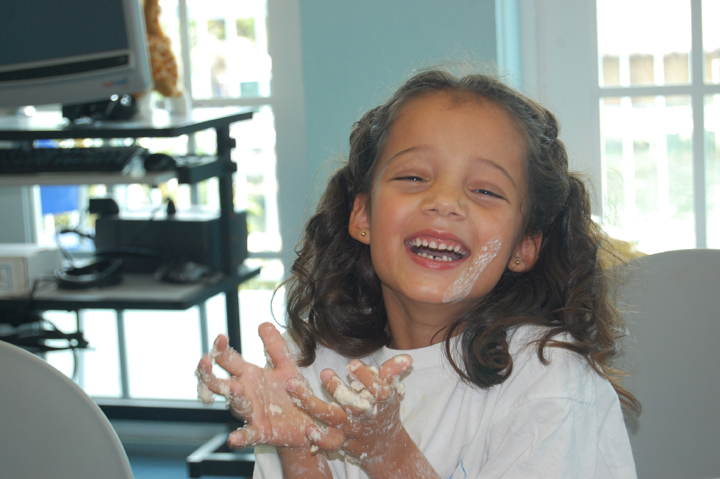
Ariane has autism as well as a sensory integration disorder that affects her motor planning skills. When we applied to attend the 5-day dolphin program at Island Dolphin Care in Key Largo, FL we where not expecting any miracles. We knew this would be a wonderful experience for Ariane because she loves animals and being in the water but I was worried about Sebastian who is 3 and was recently diagnosed with Aspergers. He struggles with sensory issues, is resistant to changes in routine and has very rigid interests, which differ completely from Ariane’s, so they usually don’t share much or play together often. I thought he might have a hard time with the trip and might be scared of the dolphins. My worries dissolved and all labels disappeared the minute we got to Island Dolphin Care and both my children ran into the building looking at the aquariums filled with fish, sea horses and even a baby octopus. In the classroom both Ariane and Sebastian had a wonderful time making play dough together, painting beautiful wooden sea creatures with glitter, stamping their names on plaques and making a giant cookie. Sebastian helped from the dock while Ariane was in the water with the dolphins and on one of the sessions he got to share with her sister and swim with the dolphins too. They both had the time of their lives. I still get all teary eyes up when I think about how happy they both where and what an amazing bond they formed with the dolphins. Back home, my husband, who was not able to come with us immediately noticed Ariane was talking in longer sentences, her volume had increased and she seemed more confident. Days before going Ariane had a new battery of exams done at the hospital but now those difficult moments seemed to have been washed away completely by the wonderful experience with the dolphins. As the weeks went by we noticed Ariane had become more independent; she now wants to do everything by herself, is willing to try harder and handles frustration better. At school her teacher noticed she seems more secure of herself and independent and was thrilled to see an increase in her attention span. But the greatest gift we received from our new dolphin friends was the improvement in my children’s relationship. After they shared this wonderful experience Ariane and Sebastian are playing together more than they ever have and even having conversations. Sebastian seems to have discovered that what his sister likes can be fun too and now he is willing to play with her even if it means playing with princesses! My children have known each other since birth but they where brought together by this experience.
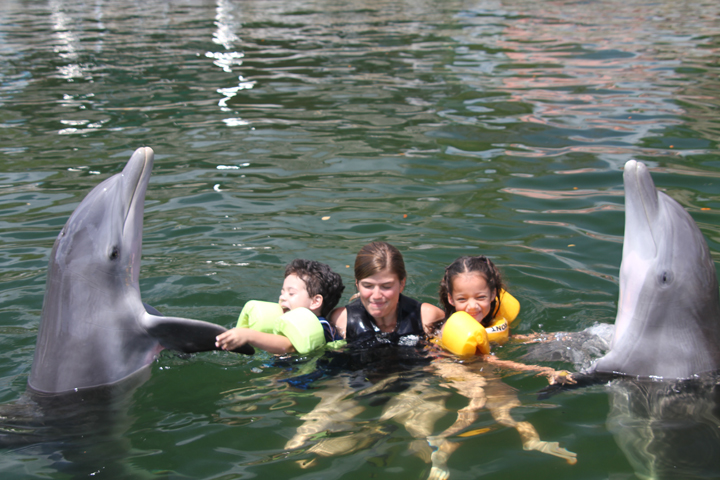
Island Dolphin Care, Inc., was created by Ms. Deena Hoagland, LCSW, after witnessing the remarkable recovery of her son, Joe, after he began swimming with dolphins at the age of three. Deena and her husband, Peter, brought Joe to Dolphins Plus, in Key Largo, FL in the hope that the dolphins might motivate Joe to use the left side of his body-weakened from a stroke which occurred during his third open-heart surgery at the age of 3. Joe had not responded well to traditional therapies. At Dolphins Plus, Joe began to make progress physically and psychologically in a natural, non-threatening, fun setting. He took pleasure and satisfaction in completing his exercises, assisted by the unconditional support from the dolphins. Joe responded extremely well to this “new” approach, increasing muscle tone and flexibility, as well as increasing his self-esteem. With the support of the dolphins, especially his dolphin friend “Fonzie,” Joe was able to normalize his young life. Deena hypothesized that if dolphins could help Joe feel better about himself, and motivate him to try new tasks, then the dolphins might also help others, and Island Dolphin Care was born. Since opening Island Dolphin Care has been a place where children and adults with developmental and physical disabilities, emotional challenges and critical, chronic or terminal illness find joy in discovering new abilities and where the stress and grief is washed away by the unconditional love and inspiration provided by the dolphins.
ANIMAL’S THERAPEUTIC POWERS
The first recorded center to use animals therapeutically was the York Retreat in England, founded in 1792 where they used animals for the treatment of individuals with mental illness. (Cusack & Smith, 1984). The therapeutic and health benefits when people and animals interact has been researched scientifically since the 1960’s. A study done at the University of Pennsylvania in 1980 showed that people’s blood pressure, respiration and heart rate increased when they came in contact with other people. However, when a person touched a familiar or non-threatening animal, their blood pressure, respiration and heart rate decreased. Other studies showed that after patients watched fish in an aquarium at a dental office that not only was their blood pressure lowered, but they needed less pain killing medication during their dental examination and surgeries (Kamberg, 1989). As the research has indicated, animals increase the mental well being of individuals through their companionship, and have physical health benefits such as lowering blood pressure. Another important benefit humans receive from animals is emotional. Animals can give a sense off security and increased self-esteem because of their non-critical attitude toward people (Angier, 1983; Arkow, 1984; Cusack & Smith, 1984).
DOLPHIN ASSISTED THERAPY
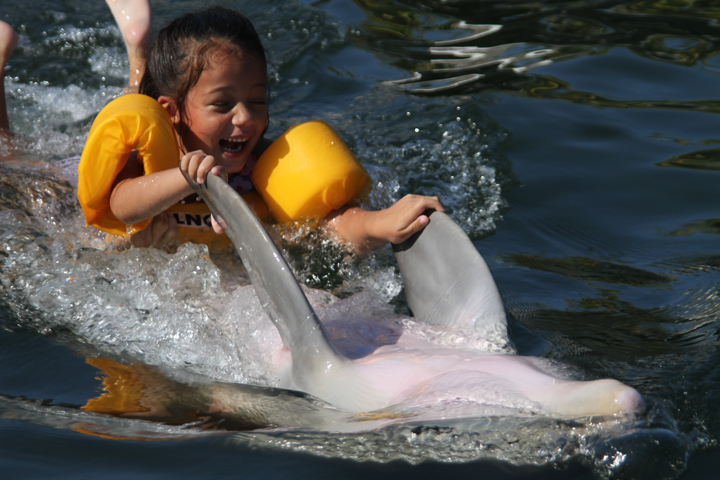
Dolphin Assisted Therapy is an evolving field that probably originated in the late 1970s and has gained much popularity. There are DAT programs operating throughout the world. These programs have been used as a therapeutic approach to increase speech and motor skills of patients diagnosed with developmental, physical, and or emotional disabilities. DAT has also been the subject of controversy in the medical field for the lack of scientific data to support it and because some scientists consider the possibility that the dolphin’s sonar triggers a healing process through the increase of endorphins and T-cells. There are many anecdotal stories of dolphins having a positive effect on children with disabilities but few research studies have been made that follow a strict scientific method. One of the exceptions is a study by Dr. Renee Terrasi, Ph. D., BCBA-D, founder and director of Peace by Piece Learning Center , a school for children with autism and related disorders in Fort Myers, FL. Dr. Terrasi studied the effects of DAT on the frequency that each child used verbal communication. 3 boys with autism between the ages of 12 and 15 who attended the Island Dolphin Care 5-day program participated in the study. Dolphins are highly intelligent and social animals that usually show great empathy and care, especially with children. Research supports that dolphin’s cognitive capabilities are closer to humans than any other animal. Dr. Terrasi mentions that according to Nathanson & de Faria, one theory about why dolphin assisted therapy is successful is because “dolphins, like humans, may be genetically programmed and are motivated to behave as they do as a consequence of social bonds and group cohesiveness”.
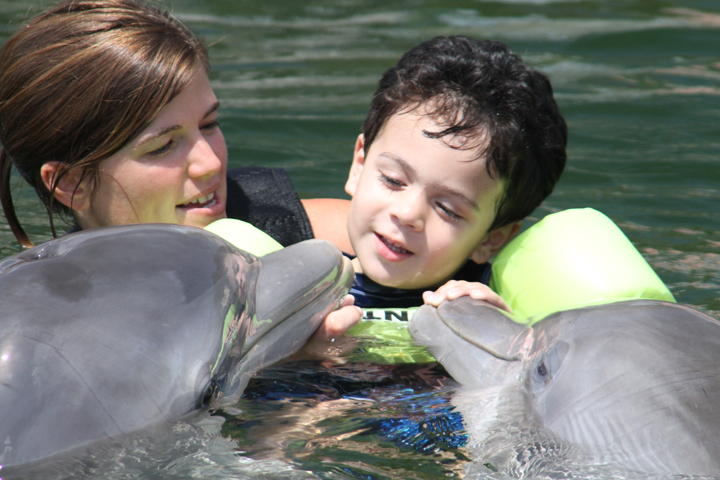
Dr. Terrasi’s study provides significant data, analysis and results that Dolphin Assisted Therapy increases speech production, while decreasing the number of verbal prompts required in children with autism. Dr. Terrasi believes that DAT will have lasting effects on the participants because expectations have been increased. The parents of these children know that they can communicate so they expect more of their children. Many people who have participated in DAT relate that they felt relaxed and accepted without judgement by the dolphins, not having to worry what someone thought about them maybe for the first time in their lives. Children with disabilities struggle with many things, they live in a world where they always stand out and where their self esteem is constantly being bombarded. I believe that when children realize what they are capable of doing they acquire a sense of achievement that boosts their self esteem and motivates them not only to repeat these accomplishments but also to try new things. I know after swimming with the dolphins Ariane was given something invaluable by her dolphin friends Sarah, Grace, Bella and Fiji : the feeling that she is like any other child and that she can do anything!
VISIT Island Dolphin Care’s website to learn more about their amazing program HERE!
Click HERE to download their application.
RELATED POSTS
Autism and Bilingualism: Our Family’s Journey
This article is featured in Mamiverse:
- Guatemalan Dulce de Chilacayote Recipe (Crystalized Chilacayote Candy) - February 26, 2024
- Guatemalan Naranjas en Miel Recipe (Candied Oranges Recipe) - February 25, 2024
- Traditional Guatemalan Candy - February 25, 2024
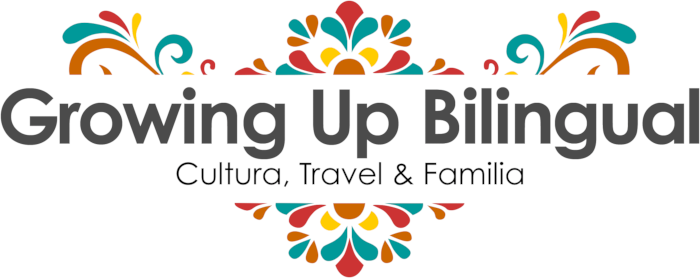



I’ve always heard that swimming with Dolphins have wonderful benefits for those with disabilities but it also helps relieve stress. What a wonderful opportunity
What a beautifully told story about the dolphins and the children, deeply believe in “animal therapy” for a lot of individuals struggling in their lives fro children to adults. I’ve seen dog, cat and horse therapies be very effective. However, I don’t remember anything as touching and memorable as your story. Good for you and your family. Kids are amazing.